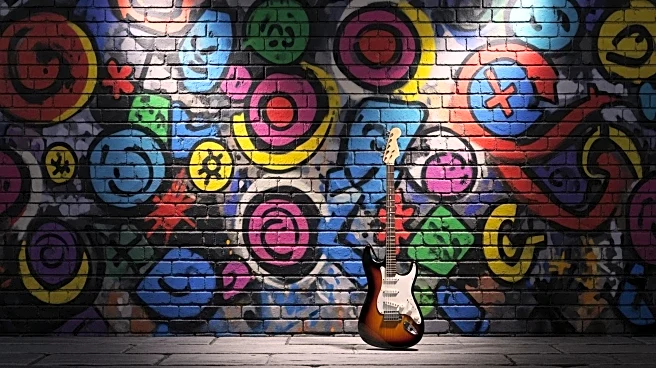What's Happening?
In Russia, the underground music scene is actively resisting government censorship and repression. Despite bans and threats of imprisonment, musicians continue to perform anti-war songs and politically charged music. The Kremlin has attempted to suppress these artists by designating them as foreign agents and arresting them, yet the movement persists. Notable figures like Noize MC and Stoptime are at the forefront, using their music to protest against President Vladimir Putin's regime and the ongoing war. The Russian authorities have banned songs, but these efforts have largely backfired, as millions continue to access the music through platforms like YouTube.
Why It's Important?
The resilience of Russia's underground music scene highlights the power of cultural resistance in authoritarian regimes. Musicians have become symbols of political dissent, influencing public opinion and providing hope to those disillusioned by the government's actions. This movement not only challenges the Kremlin's authority but also underscores the role of art in social and political activism. The continued popularity of banned music suggests a growing discontent among the Russian populace, potentially leading to broader societal changes. The international collaboration of artists further amplifies the message, drawing global attention to the issues within Russia.
What's Next?
As the Russian government intensifies its crackdown on dissent, the underground music scene is likely to face increased pressure. However, the determination of these artists suggests that the movement will continue to grow, potentially inspiring other forms of resistance. International support and collaboration may bolster their efforts, providing additional platforms for their message. The Kremlin's actions could lead to further international condemnation, affecting Russia's diplomatic relations and cultural exchanges. The persistence of this movement may eventually contribute to political shifts within the country.
Beyond the Headlines
The struggle of Russian musicians against censorship raises important questions about freedom of expression and the role of art in political discourse. It highlights the ethical implications of government control over cultural production and the resilience of human creativity in the face of oppression. This situation may also influence global perceptions of Russia, affecting its cultural and political standing. The underground music scene's defiance serves as a reminder of the enduring power of art to challenge and change societal norms.










